Main navigation
The strong research culture established at the college in the 1980s was firmly entrenched over the following two decades, and the college built a national reputation in the research areas of gerontology, health systems, and pain management. Many of the centers and initiatives in place today have their roots in this era, and many current faculty came on board or were students at the college during this time. The later years saw development of new initiatives and programs like the Doctor of Nursing Practice (DNP), a building remodel, and an investment from the state legislature to help counter the nursing shortage.
Faced with difficulty recruiting Certified Registered Nurse Anesthetists (CRNAs) to work in the state, the Iowa Hospital Association asked the Board of Regents for help. There were no CRNA programs offered within the state, and it seemed that the time was right to launch one. Developed in partnership by Dean Felton, a nurse anesthetist herself, and John Tinker, director of anesthesiology at the College of Medicine, the College of Nursing nurse anesthesia master’s program began in 1994 with a cohort of six students. In 2010, the program transitioned to a DNP program and became one of the first accredited BSN-DNP nurse anesthesia programs in the country.
Geraldene Felton stepped down as dean in 1997, and Melanie Dreher, formerly professor and dean of the University of Massachusetts–Amherst School of Nursing, led the college from 1997 to 2006.
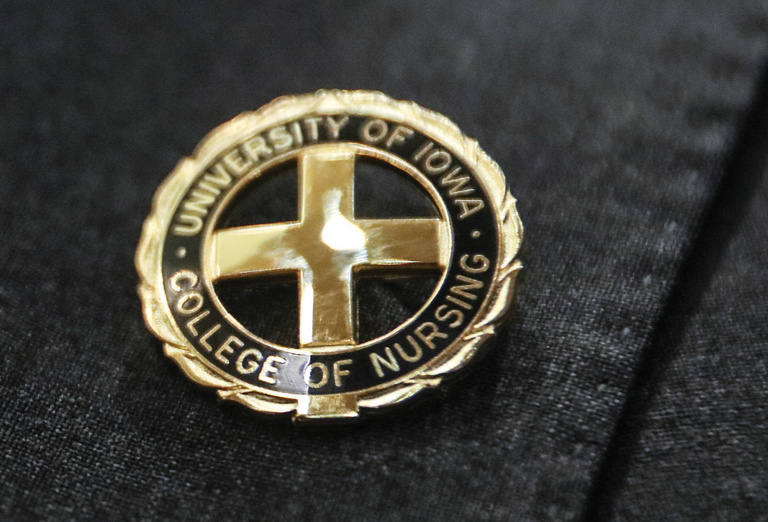
The advent of managed care in the 1990s led to concern nationwide over the traditional role of the hospital nurse, but Dean Dreher was excited for the future. “The health care system of the future will not be organized in individual nursing roles … Nurses will be following populations of patients across settings,” she told the Iowa Press Citizen in November 1996, adding that she believed there would be an emphasis on nurses holding higher degrees as the profession advanced toward functional nurse autonomy. Fittingly, it was during Dreher’s deanship that the college added the DNP to its degree offerings in 2006, with Patricia Clinton (76BSN, 84MA) spearheading the transition.
The college and the University of Iowa Hospitals and Clinics (UIHC) Department of Nursing began collaborating on nursing research to enhance the quality of nursing care in the late 1980s and took the partnership further in 1999 when they launched the University of Iowa Nursing Collaboratory (UINC). Designed to serve as an incubator for creativity and innovation to enhance nursing education and patient care, the UINC provided an infrastructure for creative collaboration in four domains: education, practice, informatics, and research. Outcomes of this partnership include a nurse residency program, the incorporation of standardized nursing language developed by the college (Nursing Interventions Classification (NIC) and Nursing Outcomes Classification(NOC)) into electronic records at UIHC, submission of grants as co-principal investigators and investigators, collaborative research project implementation and publication of results, and development of the Iowa Model of Evidence-Based Practice, a widely used tool providing guidance for clinicians to use research findings for improvement of patient care.
Additionally, this partnership led to the 2006 opening of a state-of-the-art simulation lab for students and health care staff education. The Nursing Clinical Education Center (NCEC) is in the UIHC general hospital, but jointly managed and utilized by the college and the Department of Nursing. It is also jointly funded, with additional private gifts and industry support. Buoyed by the successes of the past 24 years, the UINC partnership continues and is recognized as an inspirational model of academic practice partnership.
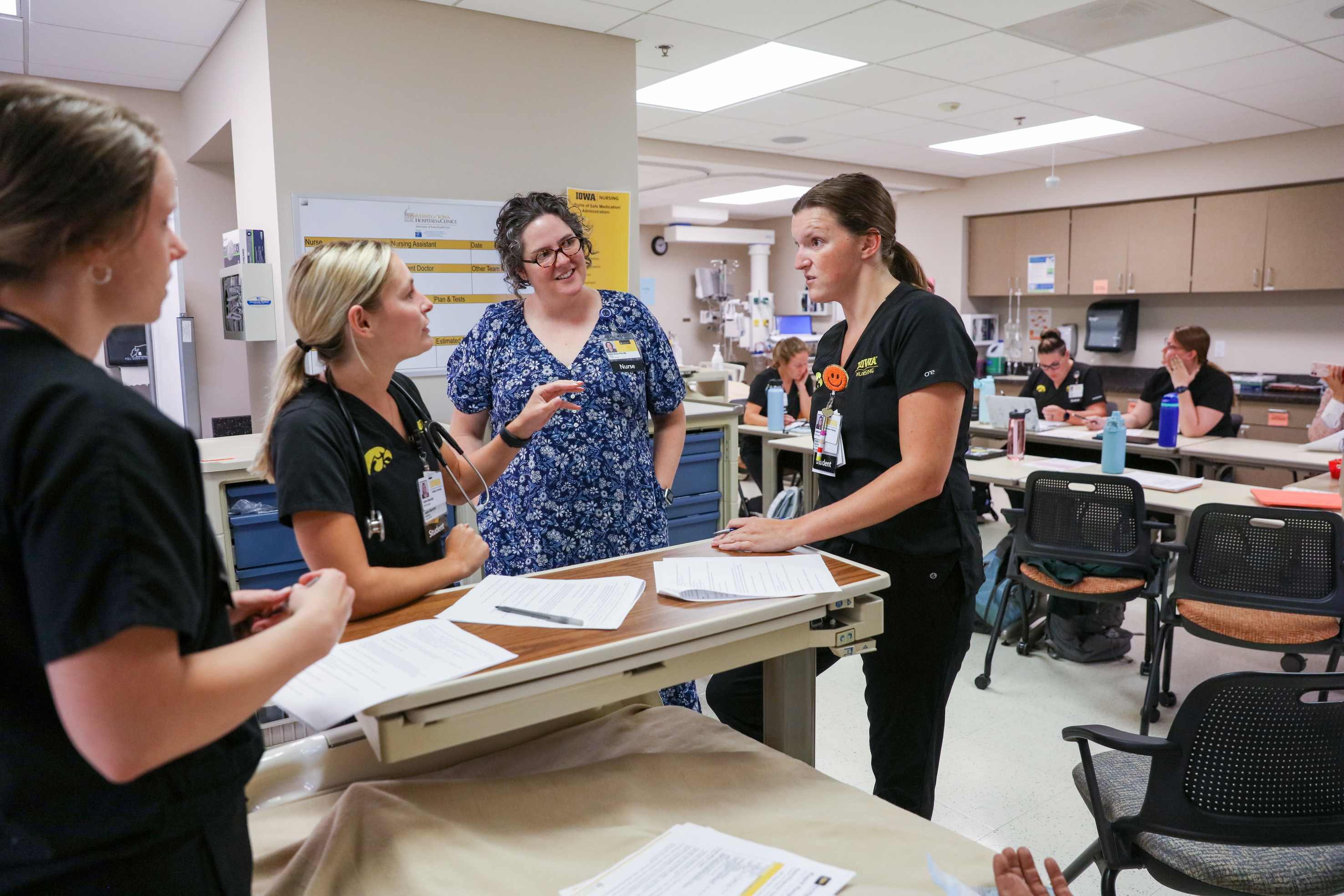
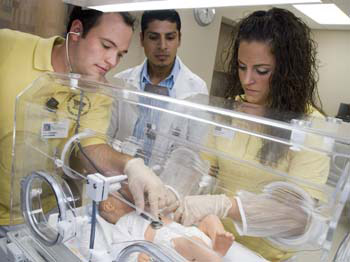
3,000
Nurses, nursing students, and nursing assistants use the NCEC annually
100
Hours of simulation BSN students complete by graduation
In 2007, College of Nursing Professor Rita Frantz (73MA) was appointed dean. Frantz joined the faculty in 1972 and was recognized nationally and internationally for her work in pressure ulcer prevention and treatment.
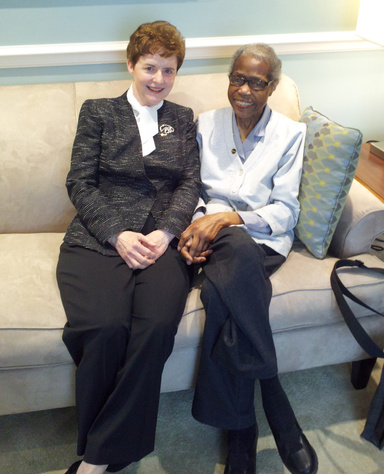
As a champion for nurses across the state, the college was integral to the implementation of recommendations from the 2010 Institute of Medicine report, The Future of Nursing: Leading Change, Advancing Health. Formed in 2012, the Iowa Action Coalition (IAC), co-led by Dean Frantz, held four state-wide summits to gather input on and support for implementation. One of the report’s recommendations, access to a nurse residency program for new BSN graduates and those transitioning to new roles, emerged as a priority for the IAC. As a result, the Iowa Online Nurse Residency Program was created in 2014. Housed in the college, the program has thrived and now serves 54 healthcare organizations across 17 states.
Graduate program offerings were substantially revised during the 2000s with the advent of the DNP and the national trend toward advanced practice nursing. Faculty reduced the DNP program specialty tracks to seven in 2011 and created curricular plans for seamless student transitions from the BSN to DNP program.
The College of Nursing building, considered ultra-modern in 1971, had never had a substantial update, and by 2014, the need for renovation was clear. Official renovation planning began in January 2016, and construction began in December 2017.
Dean Rita Frantz resigned in September 2016 and passed away soon after. Completed in 2019, the renovation she began was intended to respect the existing architecture of the building while making it more welcoming, collaborative, and open. “Rita envisioned that the college was going to need this space for recruitment—and it’s what the students said they needed. She listened to students; she listened to everybody,” her husband David said at the time. “The project manager overseeing the new commons praised her for her forward thinking about the space.”
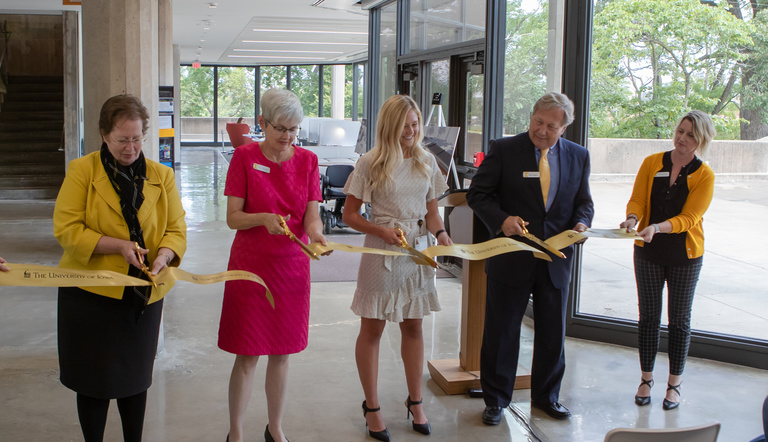
“This renovation has truly changed the student experience,” student Alexa Atkins told the Daily Iowan at the time. “The design of rooms facilitates active conversation and encourages participation, … [and the] study spaces are like a breath of fresh air.” At the ribbon cutting, UI president Bruce Harreld called the building almost unrecognizable from the inside.
Julie Zerwic joined the college as dean in 2017 after a twenty-four year career at the University of Illinois at Chicago College of Nursing, including eight years as executive associate dean.
Less than three years into Zerwic’s deanship, the COVID-19 pandemic disrupted health care and nursing education across the country, forcing unprecedented changes. At the college, innovative and engaging virtual learning opportunities created by faculty, staff, and clinical partners ensured that students continued to receive outstanding education.

As a part of a public university that proudly serves not only the surrounding community but the entire state, the college expanded its impact on Iowa in 2021 with the Simulation in Motion–Iowa program. Initially funded by an $8 million grant from the Leona M. and Harry B. Helmsley Charitable Trust, this cutting-edge mobile education program features three trucks stationed strategically around the state that bring high-quality, evidence-based clinical education to emergency medical services and hospital professionals. Each fully equipped mobile simulation truck features a simulated emergency bay, ambulance box, and video recording for analysis and debriefing, as well as four human patient simulators. Since the first truck launched in June 2022, more than 3,300 healthcare providers and other individuals in 66 Iowa counties have received education through the program.
In 2023, the country continues to face a shortage of nurses, though nursing schools turn away thousands of qualified applicants each year due to limitations in space and faculty. The state legislature recently recognized this and appropriated $2.8 million to the college to increase student enrollment numbers. Changes now underway include hiring new faculty, increasing pre-licensure enrollment, and expanding student support.
As another way to address the nursing shortage, the college launched its newest program, the Master of Science in Nursing–Entry into Practice (MSN-EIP), in spring 2023. This program prepares students of all academic backgrounds who have a degree in a field other than nursing to become practicing nurses in 20 months. With an initial cohort of 15, at capacity the program will add 48 nurses annually.
Fall 2023 finds the world of nursing education a much different place than it was in 1898, when the first nursing students began at the State University of Iowa. The profession has expanded in roles and impact over the past 125 years and the University of Iowa College of Nursing has been at the forefront. With a BSN program and four graduate programs ranked among the top ten in the country, a robust research program, and dedicated faculty, staff, and students, the college will continue to lead and build the legacy of the Iowa Nurse far into the future.
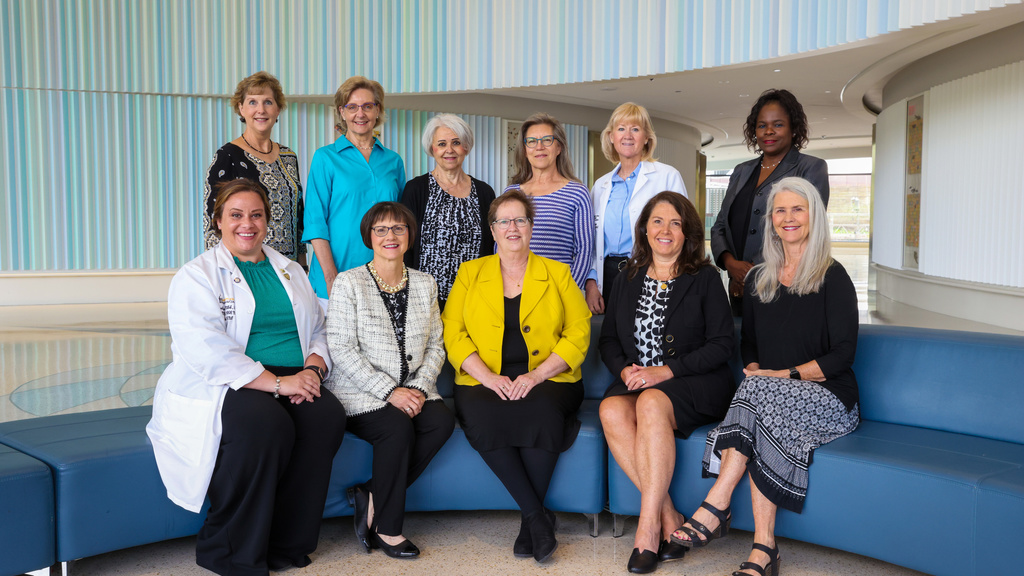
1999
University of Iowa Nursing Collaboratory launches, providing an infrastructure for creative collaboration in the domains of education, practice, informatics, and research. (2023 photo)

2000
Funding received to establish Iowa Hartford Center for Geriatric Nursing Excellence.
First group of students travel to India for winter intensive course.
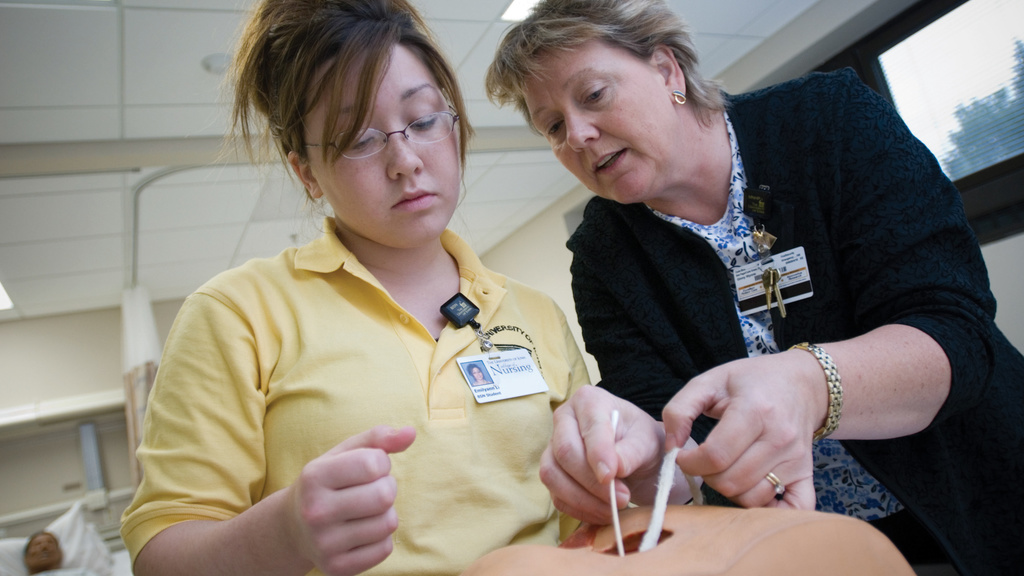
2006
- Doctor of Nursing Practice (DNP) program begins.
- Nursing Clinical Education Center opens in the University of Iowa Hospitals and Clinics. It serves both the nursing student and nursing workforce populations.
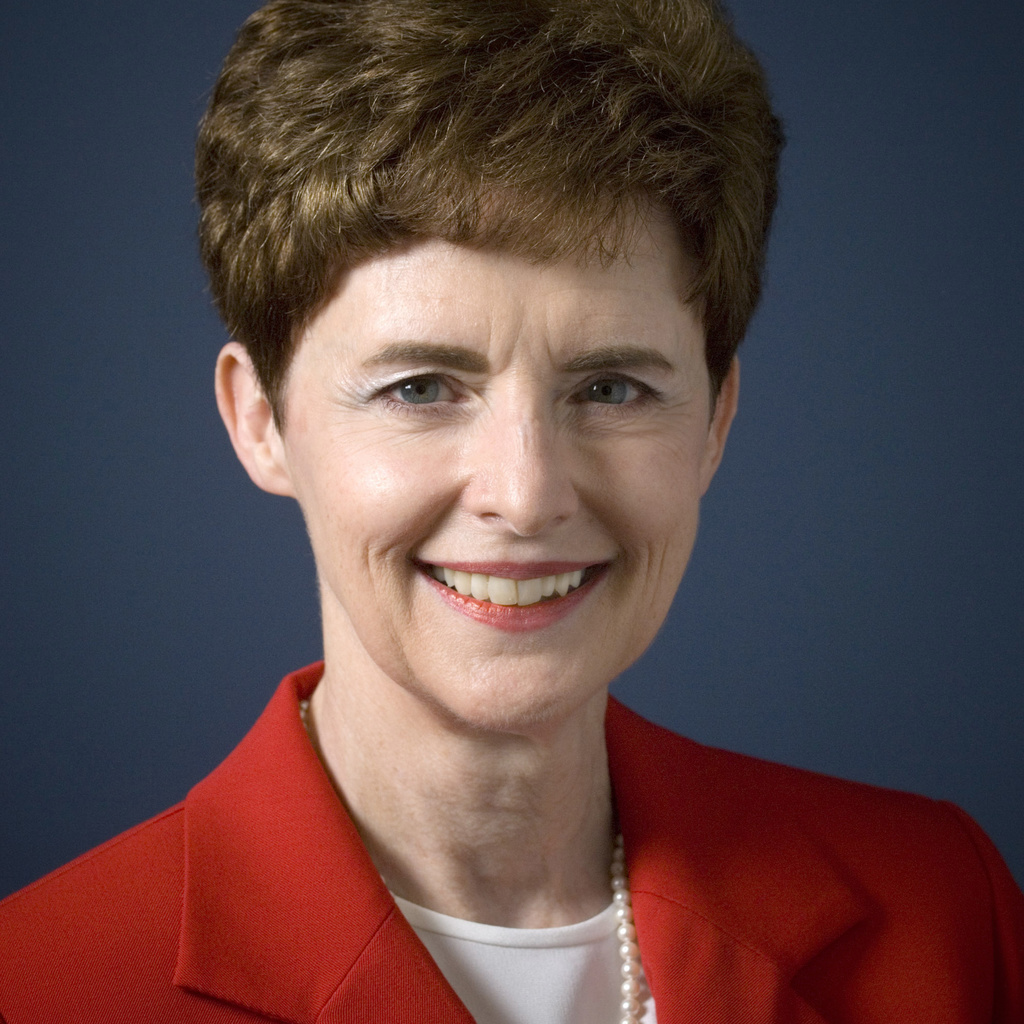
2007
Rita Frantz, PhD, RN, FAAN becomes dean.
2008
A coordinator for diversity, equity, and inclusion efforts is hired.
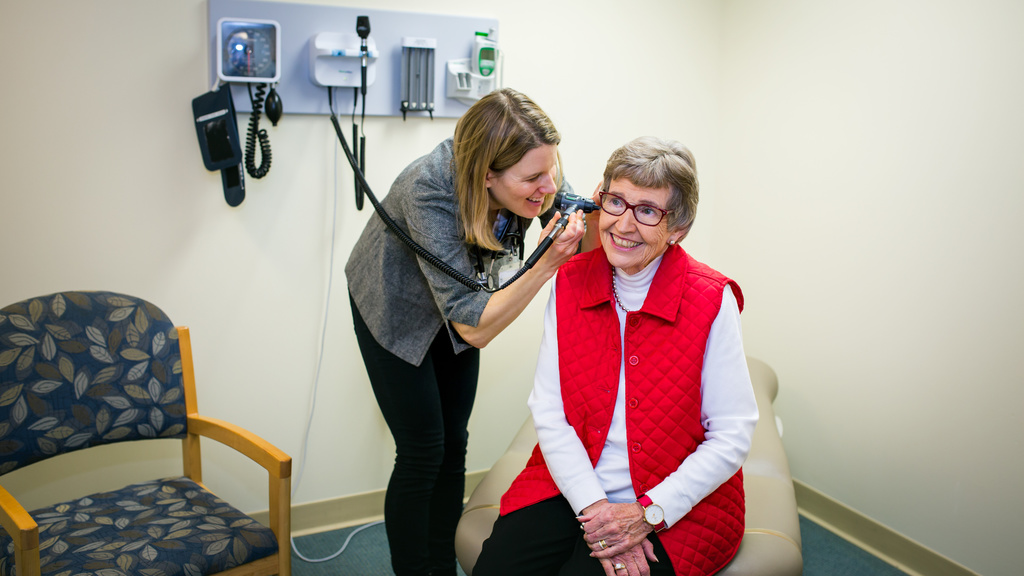
2010
- The nurse anesthesia program becomes a DNP program and is the second CRNA program approved for BSN–DNP in the country.
- Faculty practice program finalized with local agencies.
2011
- DNP specialties reduced to seven and seamless BSN-DNP curriculum developed.
- Supplemental Instruction program begins to increase pool of qualified underrepresented pre-nursing students. Nursing students are trained to tutor those who request assistance for pre-requisites.
2014
Iowa Online Nurse Residency Program created in response to 2010 Future of Nursing report.
2016
Planning begins for building renovation.
2017
Julie Zerwic, PhD, RN, FAHA, FAAN, becomes dean.

2017
Building renovations begin in December and are completed in 2019.
2018
First student global health practicum experience in eSwatini, Africa.
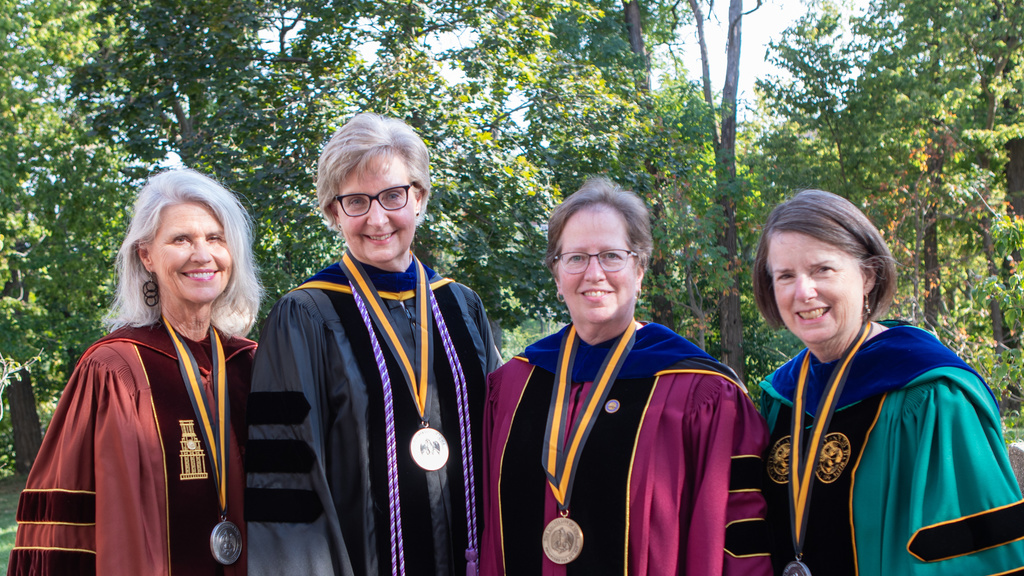
2021
First investiture celebrates appointments of Kelting Dean’s Chair in Nursing, Dr. Rita and David Frantz Professor of Nursing, Kelting Professor of Nursing, and Sally Mathis Hartwig Professor of Gerontological Nursing Research.
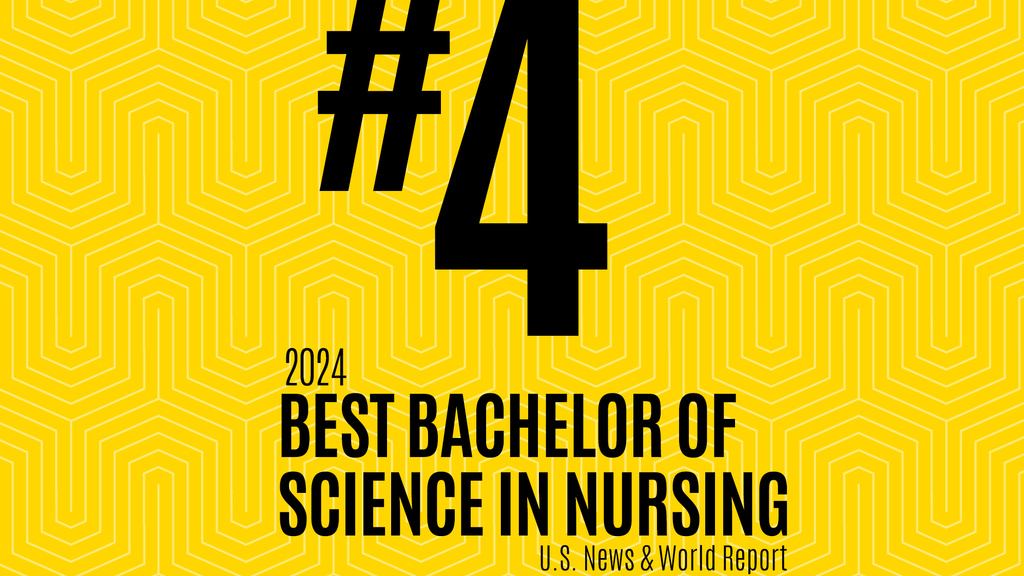
2023
- Bachelor of Science in Nursing program is ranked fourth in the nation for 2024 by U.S. News & World Report.
- Four Doctor of Nursing Practice programs are ranked among the top ten.
